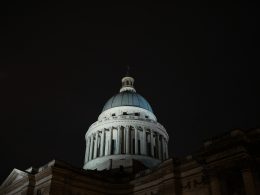The lawmaking process is a complex and often misunderstood system. At its core, it involves the creation of laws that reflect the values and beliefs of society as a whole. But what role does public opinion play in shaping these laws? Can ordinary citizens influence legislation or are they merely passive observers? In this blog post, we will explore how public opinion impacts the lawmaking process and why it’s important for all of us to pay attention to the voices around us. Whether you’re an aspiring lawmaker or simply invested in understanding how our government works, this topic is sure to be both informative and thought-provoking. So let’s dive in!
The Role of Opinion in the Lawmaking Process
Public opinion can play a significant role in the lawmaking process by influencing lawmakers to enact or reject proposed legislation. Opinion surveys provide lawmakers with information on the public’s views on a variety of topics, which can help them make informed decisions about which bills to support and which to oppose. In addition, public opinion can also help shape the way lawmakers view their job and the legislative process itself.
The Impact of Public Opinion on the Development of Laws
Public opinion can have a significant impact on the development of laws. For example, public opinion can influence which laws are passed and how they are enforced. In addition, public opinion can also play a role in the judicial process.
Public opinion can also affect the way laws are interpreted. For example, courts may interpret laws in a way that is consistent with public opinion or in a way that is more favorable to the government or the powerful interests that support the government.
Public opinion also affects the decisionmaking process within government agencies. Government officials may be more likely to approve proposals that reflect public opinion or that are supported by influential groups within society. Conversely, government officials may be less likely to approve proposals that conflict with popular beliefs or that could jeopardize their political careers.
In short, public opinion can have a significant impact on the development of laws.
The Relationship between Public Opinion and Political Parties
Public opinion is a powerful tool that can be used to shape the lawmaking process. The relationship between public opinion and political parties is complex, but has a profound impact on how laws are created and enacted.
Political scientists have long recognized the role of public opinion in shaping the lawmaking process. In 1922, Walter Lippmann argued that “the business of politics is to interpret experience, to make sense out of events, to organize opinion” (Lippmann 1922). Lippmann’s observation remains true today. Public opinion plays an important role in the formation of public policy because it provides a basis for understanding and responding to events.
Public opinion can be found at all levels of government. At the national level, public opinion polls are often used to measure support for different political parties and their policies. Polls also provide information about Americans’ opinions on a variety of controversial issues, such as immigration reform and gun control legislation.
At the local level, public opinion can be found in voting patterns. Political scientists have observed that voters tend to vote based on the views they hold rather than based on what they believe is best for the country as a whole (Skocpol 1979). This phenomenon is known as party identification or partisanship. Party identification can affect how citizens vote not only in congressional elections, but also in municipal elections and referendums (Gertz 1988). For example, when voter turnout is low, voter behavior tends to be
Conclusion
Public opinion has a powerful impact on the legislative process, and it is often difficult to determine which policies or laws are actually supported by the majority of Americans. In order to ensure that legislators are responsive to the wishes of their constituents, public opinion analysts must monitor polling data and track changes in public opinion over time in order to make informed decisions about where and how to focus their lobbying efforts.











